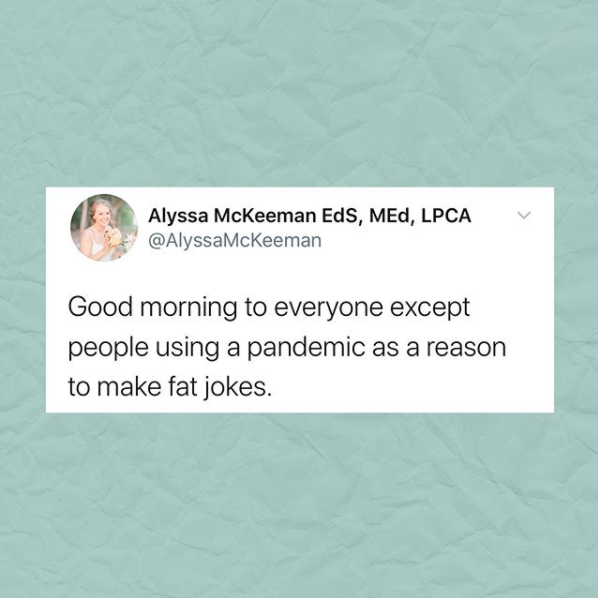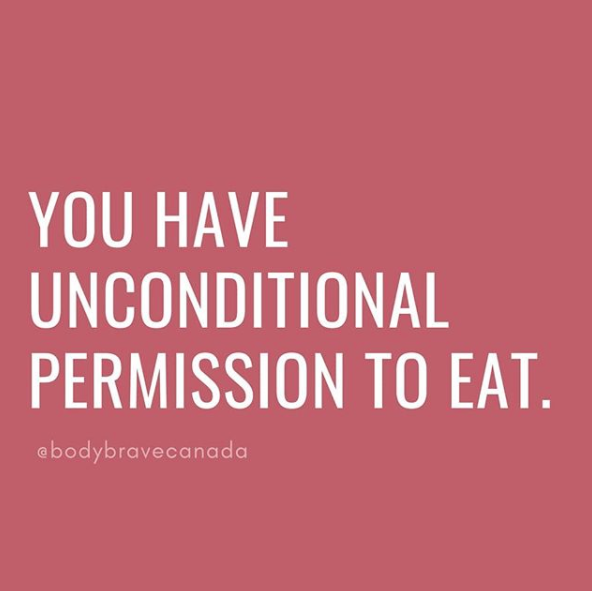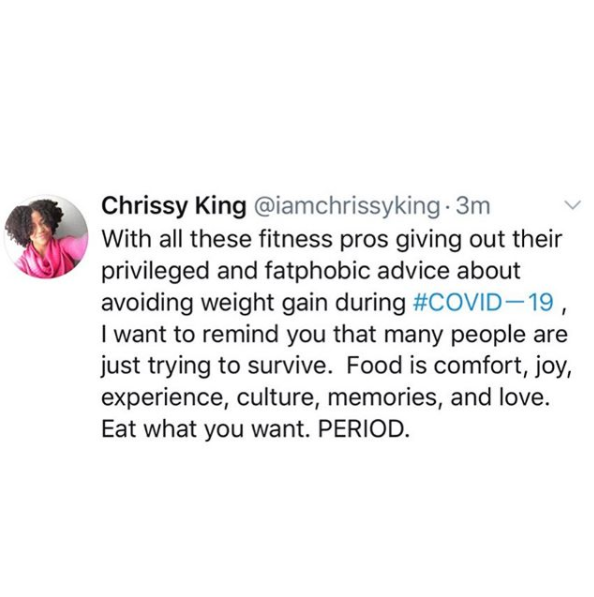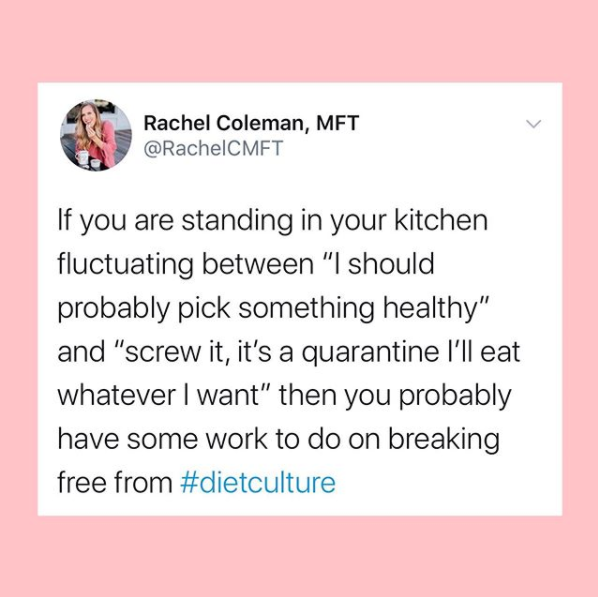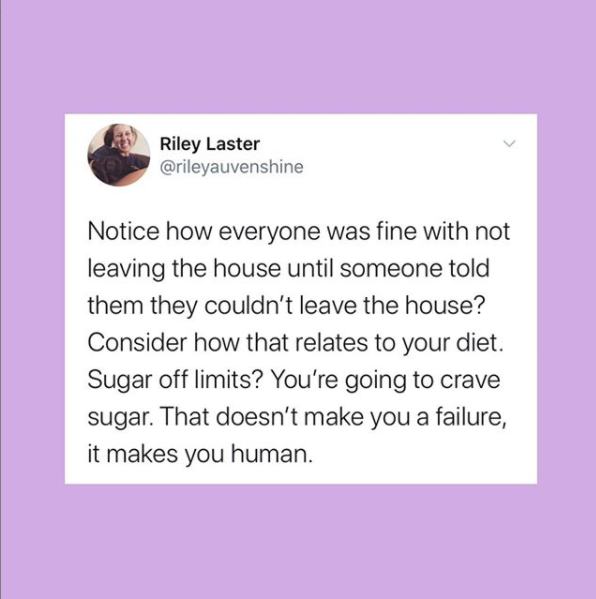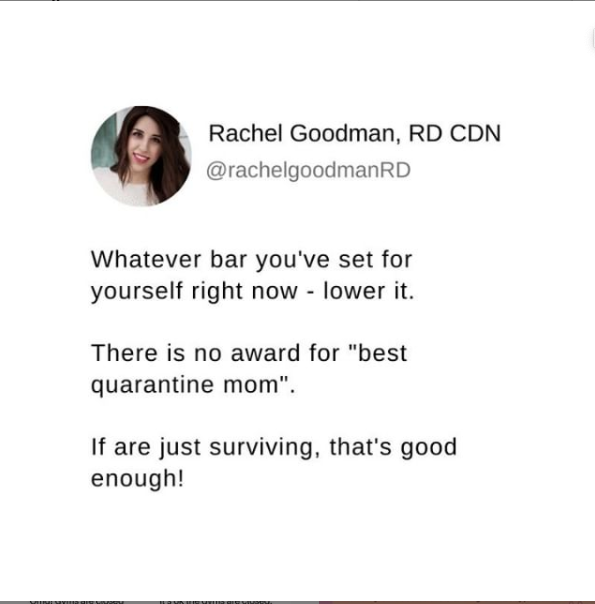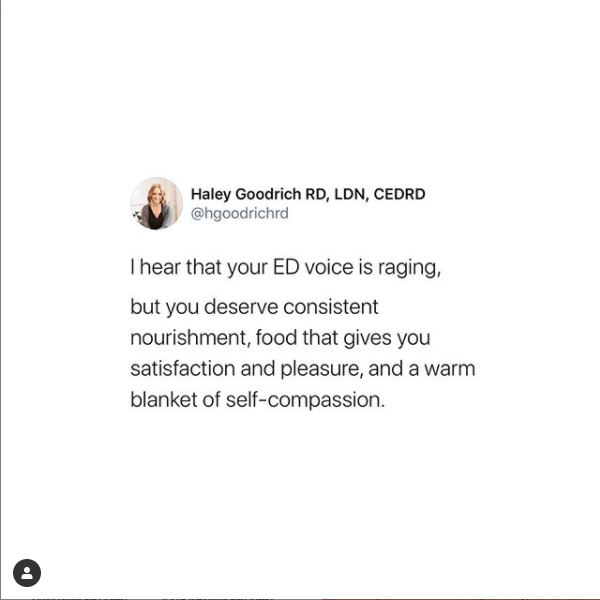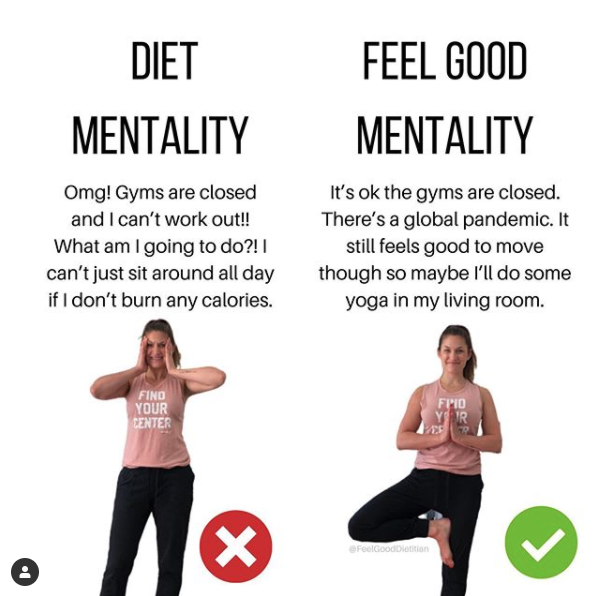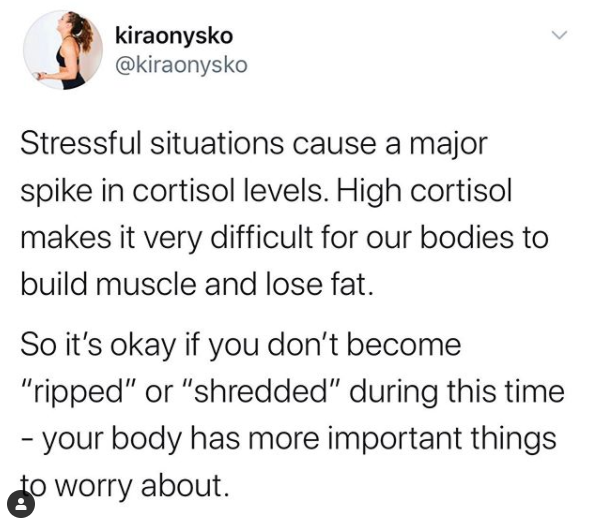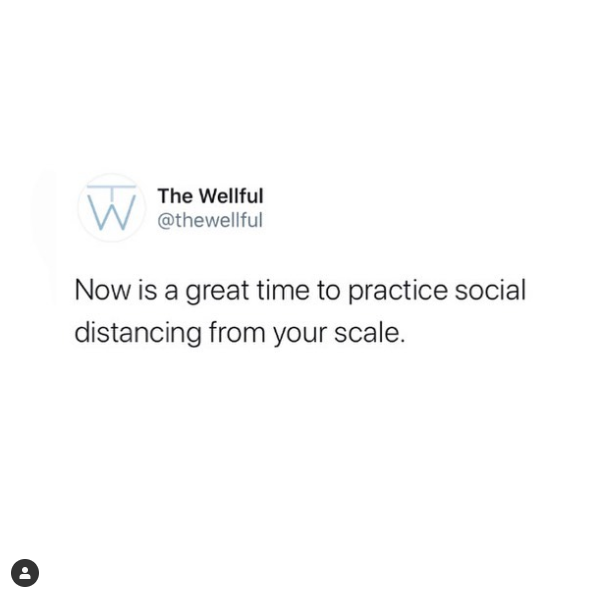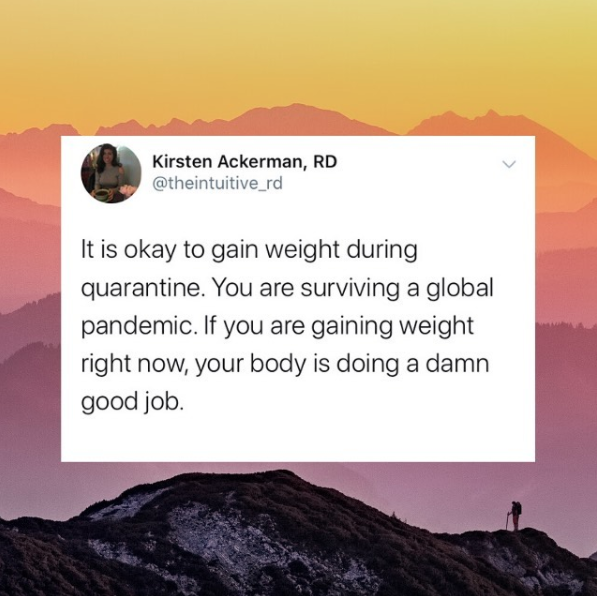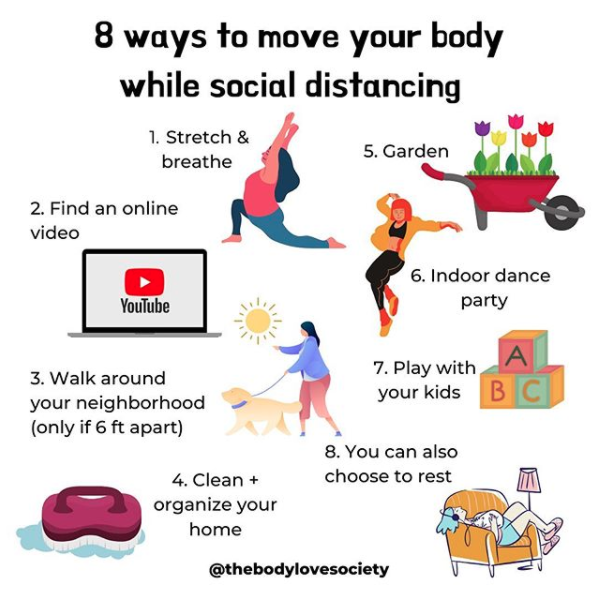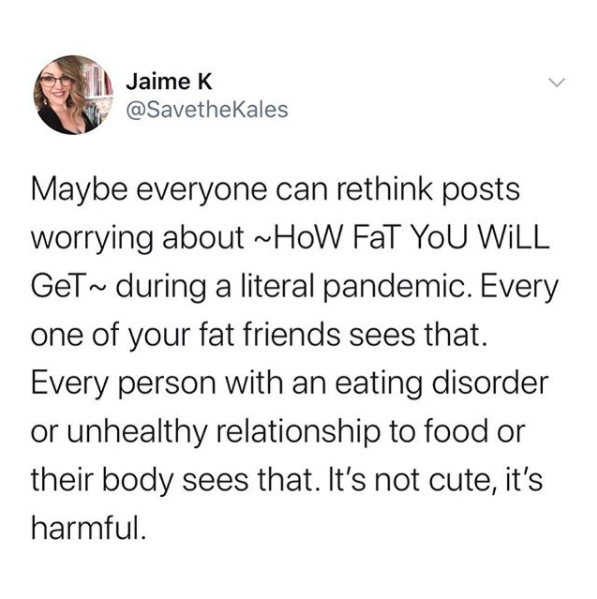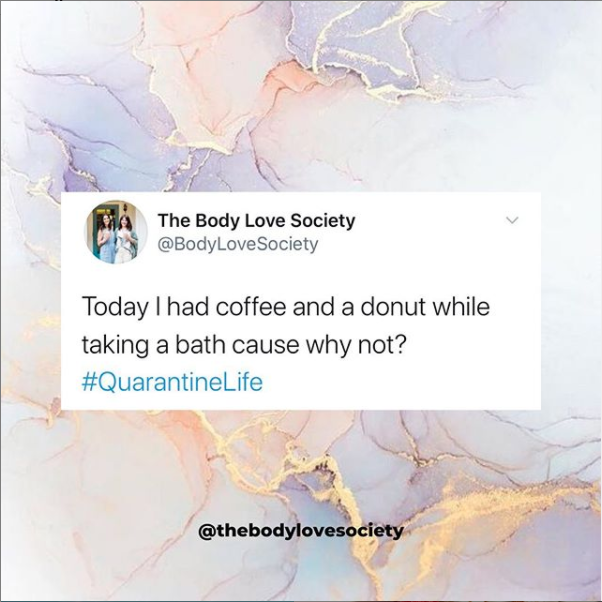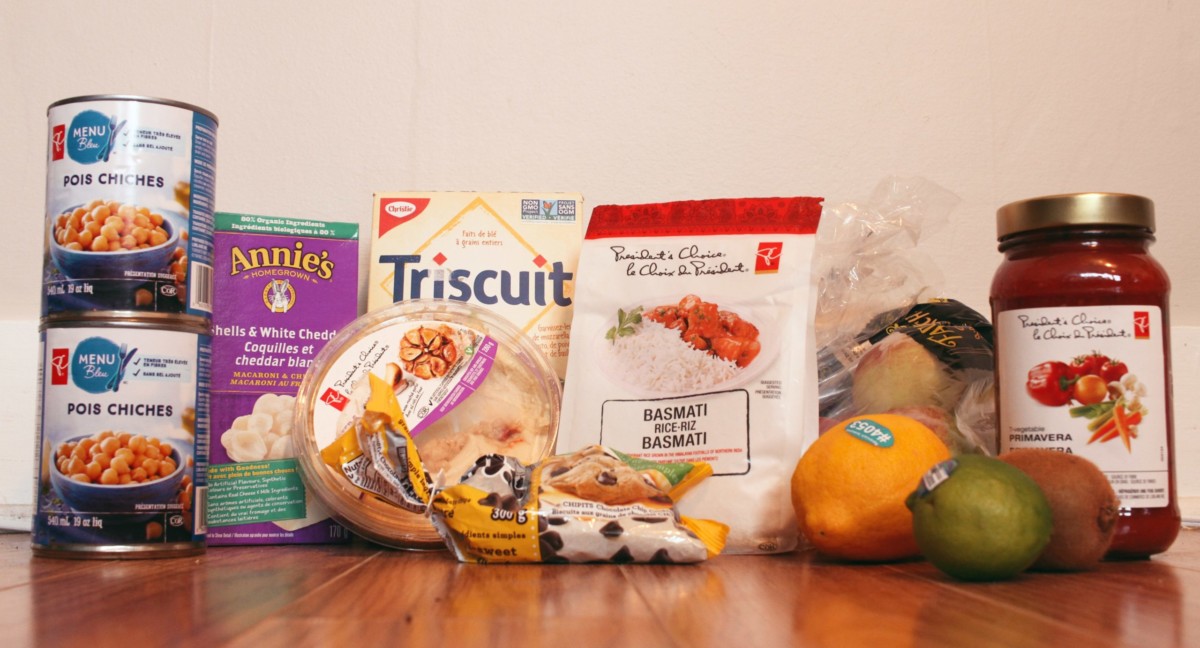
Content warning: This story discusses an eating disorder.
After months of removing all weight-loss-related content from my Instagram, it started appearing on my news feed again. But this time, quarantine style.
“The quarantine 15,” “quarantine diet plans,” “how to not gain weight during a pandemic,” “what I’m going to look like after this is over,” the list goes on.
All of this was appearing on my Facebook, Instagram and YouTube accounts, all of which I’ve purged this sort of content of in the past.
Posting this type of content is not only triggering for those recovering from an eating disorder like myself, but it also feeds into the toxic diet-culture mentality — a multi-billion-dollar industry that makes money off of making you think your body isn’t good enough.
In Canada, the diet industry is worth about $7 billion a year according to Global News.
No longer able to enjoy eating
I fell into the diet-culture trap in 2018. I broke my foot in November which put an end to my trips to the gym. Cooking and getting groceries were hard, I had little control over what I could eat so I would just eat whatever I had like frozen foods and pre-packaged meals. I couldn’t drive, I couldn’t walk and I barely left the house. Reflecting on this now, it reminds me of being in self isolation. I had a lot of time on my hands and I definitely got a little chubbier. This sent me to the google the god-awful question: “Easy ways to lose weight.”
By the time I could walk again I had a full diet planned out. I would try to eat under 1,000 calories a day and mostly lived on salads, vegetables and fruits. I started tracking exercise and food consumption and became obsessed with thinking about calories, tracking calories and weighing myself. I couldn’t eat anything without thinking about the repercussions.
I was no longer able to enjoy eating.
I’ve had body image issues all my life and even though I’m in recovery from an eating disorder, I still sometimes catch myself going back to bad habits or thinking about the repercussions of food. But I just have to remind myself: There shouldn’t be any repercussions for eating.
Your body needs fuel. You need to eat to survive. It’s OK to eat. And you don’t need to eat less when you’re not as active as before, or your routines change.
 The toxicity of diet culture
The toxicity of diet culture
Megan Jayne Crabbe, or bodyposipanda on Instagram, has been my guide for eating disorder recovery. She wrote in her book, Body Positive Power: How to stop dieting, make peace with your body and live, about how diet culture was created.
“People realised [sic] that a lot of money can be made from teaching us that our bodies are a problem, and selling us the solution,” said Crabbe in the book.
“Diet culture is dangerous detoxes, liquid fasts, poisonous pills, and ‘magic’ potions. It’s fitness as an obsession and self-hatred as a motivator. Diet culture is what teaches us to base our worth on things that we can weigh, measure, and burn off. Diet culture is being able to find 50 different ways to starve yourself at your local magazine stand. Diet culture is why girls start dieting, on average start, at age eight. EIGHT.”
For me, diet mentality is like a deep, dark hole. All it takes is one Instagram post about how many calories are in any given meal and I’m falling down that hole again. Sometimes I’m able to climb right out of it, other times it takes weeks. And when you’re in self-isolation with not much control over what you’re eating and how much you’re moving your body, it can make things worse.
A pandemic is stressful. COVID-19 is terrifying. Being on lockdown sucks. People are most likely more anxious than usual, which sometimes, means craving food, which is OK.
You deserve to love your body and to nurture it. You deserve to eat the ice cream, the burgers, the chips. You deserve to take care of your body during this scary, unprecedented time.
You have more important things to worry about than becoming fat. There’s nothing wrong with being fat in the first place. This might come as a shock for many who’ve been bombarded with the image of “skinny” on health advertisements, billboards, TV and even products like skinny lollipops and skinny tea. It’s fucking insane and it’s everywhere.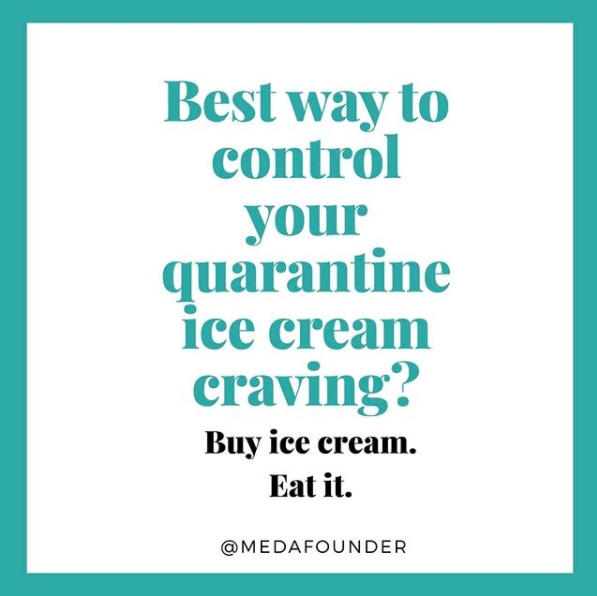
You can be healthy at any size. In fact, there’s a movement encouraging people to think this way, which the Association for Size Diversity and Health says on their website is “working to promote size-acceptance, to end weight discrimination, and to lesson the cultural obsession with weight loss and thinness.”
Thinness does not equal healthy. You don’t need to be thin to be happy. You don’t need to use this time to emerge with a “new” body because honestly, let’s face it, it’s not going to happen because diets don’t work. Ninety-five per cent of diets fail and most people will regain the weight they lost in one to five years, according to Monte Nido, an eating disorder treatment and exercise centre.
In Crabbe’s book, she says “The weight-loss industry is one of the biggest and baddest in the world, ensuring a constant stream of cash by supplying us with new ways to hate ourselves every season.”
And if you are still looking for guidance on what you should eat during this time, Crabbe has good advice in her book: Eat normally.
Normal eating can be anything from overeating because you’re sad and the food tastes good, to leaving an extra cookie on the plate because you know you can have some tomorrow, Crabbe said. Either way, normal eating is flexible and is different for everyone.
“Normal eating is flexible. It varies in response to your hunger, your schedule, your proximity to food and your feelings.”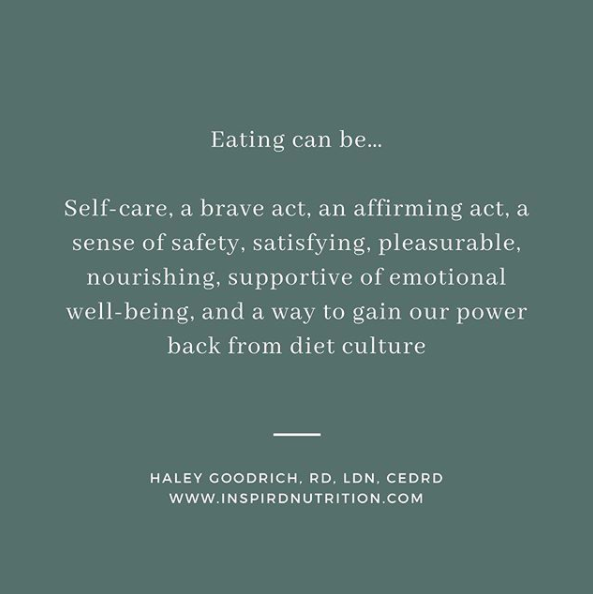
Don’t let diet culture win during this pandemic. Take care of yourself and stay home. Eat as much, or as little as your body is telling you to. YouTube some workout classes because it feels good to move your body, not because you feel like you have to.
I won’t go back to my old habits. I’m going to make meals like vegetable stews and mac and cheese, and I’m going to bake things like cinnamon buns and bread. I’m going to go on hikes in the woods and I’m going to take online yoga classes. Repairing my relationship with food has been a tough journey, but the more I learn to love and listen to my body, the easier it becomes.

